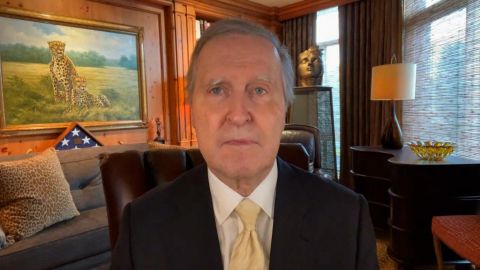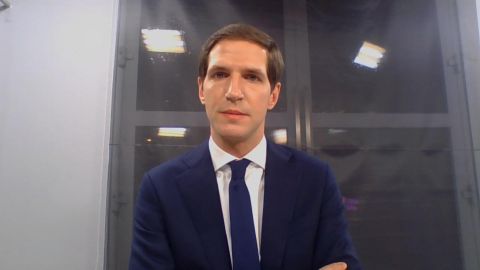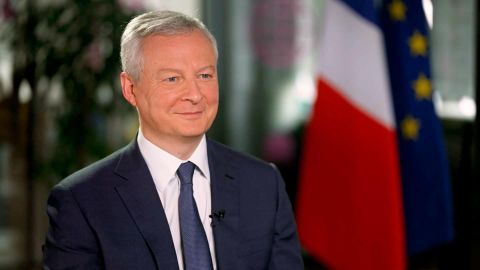Read Transcript EXPAND
CHRISTIANE AMANPOUR: the U.S. has had its special intelligence briefings. I’m sure you’ve heard a lot about it, maybe to some of the members of Congress, and they seem to be very worried about what Putin’s next moves in Ukraine will be. Tell me what you know and what you can assess given your experience.
WILLIAM COHEN, FORMER U.S. DEFENSE SECRETARY: Well, I don’t have access to that briefing. But I can tell you based on past experience looking at how President Putin has operated, I think most of them have now been briefed to the extent that our intelligence community believes that he is going to lay siege to Kyiv. He’s going to unleash holy hell, I think, in terms of hitting civilian areas, killing hundreds, if not thousands of innocent civilians. I think that is what he has done in the past. Chechnya comes to mind. But he — it also comes to mind in Syria, where he was supporting Assad dropping barrel bombs on innocent people below. So, I think, when it comes to waging war, he is not bound by any sense of priority of concern about how many or who are killed.
AMANPOUR: And so, what does the U.S. do? I mean, we’ve heard from NATO, we’ve heard from the United States, we’ve heard from the E.U., all the allies. I mean, they keep saying, we cannot offer any military help because this would set off, you know, the Third World War? But you heard — perhaps you heard at the beginning, the foreign minister of Ukraine who we reached in his bunker there, they need help even from the air to try to damage and slow the advance of this convoy on Kyiv.
COHEN: Well, I think that we can continue to give them the kind of weaponry looking for air defense systems, stingers, the ability to take out tanks, the javelin and other types of equipment, but I think President Bush has acted responsibly in the sense that we got to find ways, can we bring about a cessation of hostilities without going face to face with the Russian military, something that we have avoided over the past 70 years and something we want to try to avoid, if at all possible. But I think to the extent we are to provide air cover, that means we’re at war with Russia, certainly aircraft to aircraft and that would then set off a whole reaction, chain reaction and such in terms of how do we control it at that point. And the one thing we have learned from our past endeavors is that predictions are difficult, especially about the future, and Yogi Berra comment, and that is particularly true in this case here. We don’t know what the reaction will be if we start upping the ante and taking out all of that convoy, that 40-mile convoy of military vehicles along the way. They would be sitting ducks, as others have said. They would be easy to take out, but in taking them out, we would basically be declaring war against Russia.
About This Episode EXPAND
Ukrainian Foreign Minister Dmytro Kuleba discusses the state of the war. French Finance Minister Bruno Le Maire discusses efforts for a diplomatic resolution. Tykhon Dzyadko, the editor-in-chief of TV Rain, explains what Russians are watching and reading in their media. Former U.S. Defense Secretary William Cohen discusses the U.S. response to the war.
LEARN MORE



